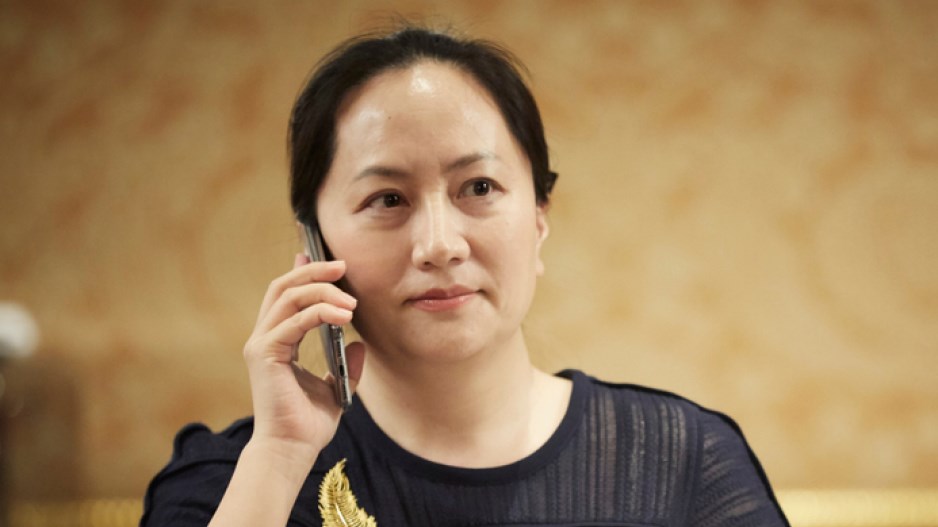Canadian border officers are within their right to seize Huawei Technologies CFO Meng Wanzhou’s electronic devices and passcode as part of their admissibility exam, Crown lawyers told the court today.
At the latest session of the marathon extradition proceedings, Crown attorney Diba Majzub told the court that - given that Meng is not a Canadian citizen, the onus was on her to prove her admissibility to Canada on Dec. 1, 2018.
As the CBSA already received word of the U.S. charges against Meng, it triggered a “lookout order” on the part of border officers needing to confirm the Huawei executive’s admissibility based on potential criminality and national security grounds.
Majzub presented several case precedents of foreign nationals seeking entry without citizenship status where evidence seized during CBSA exams were considered legitimate and not a violation of the entry applicants’ charter rights.
The Crown also argued yesterday that the behaviour of RCMP and CBSA officers did not indicate an intentional conspiracy to obtain Meng’s passcodes illegally. Majzub said that officers involved in the case logged the passcodes in its evidence log and freely mentioned it in documents surrounding the case.
“[The defence] said there is a covert plan between the CBSA and the RCMP,” Majzub said. “We have to consider the reaction as part of the plan. If there’s a plan, there must be an understanding to keep things quiet… There is no covert behavior here.”
When Judge Heather Holmes asked if the RCMP and the CBSA may have decided spontaneously to take the passcodes to aid the FBI investigation against Meng, Majzub said the answer from CBSA officer Scott Kirkland during testimony spelled out exactly why that’s not logical.
“He was confounded by this suggestion,” Majzub said. “What he said was, ‘Why would I do something like this? It would be so much trouble [to deal with questions linked to info-sharing]. What could have been gained by doing that?’ He knew CBSA powers should not be used to gather criminal evidence.”
Today’s arguments also included Crown attorney John Gibb-Carsley delving into the allegations made by Meng that ex-RCMP officer Ben Chang - who has refused to testify - may have sent the device serial numbers to the FBI.
Gibb-Carsley said there was no evidence that anything like that ever happened, adding that - in the case where an accusation of wrongdoing is made - the onus is on the defence to prove its existence, not for the Crown to prove that it didn’t.
“[Chang’s] e-mails about the FBI’s MLAT [Mutual Legal Assistance Treaty] request does not show anything was ever sent,” Gibb-Carsley said.
The Crown attorney also noted Meng’s defence’s focus on the fact that the RCMP recorded the devices’ various serial numbers - implying such data could be used to illegally breach the devices for certain evidence sought by the FBI.
Gibb-Carsley again refuted that theory.
“They are physical numbers printed on the devices,” he said. “There’s nothing digital about it. My submission is that, in this file, [numbers like the device ESN] have taken on an exotic persona... But they are serial numbers by a different name. These devices were never electronic accessed. Physical number was what’s obtained. It’s important because these are not electronic content.”
In the afternoon, Gibb-Carsley furthered his argument on the topic of Chang’s written submissions and refusal to testify - which has led to the Meng defence requesting “adverse inference,” or the assumption that Chang’s in-person testimony would have been the opposite of what his written submission was.
Gibb-Carsley said the Crown never relied on Chang as a witness and only produced the written statement because it was requested by Meng - making Chang a defence witness rather than a Crown witness.
That also means that an adverse inference would potentially give too much weight (to the advantage of Meng) to a written testimony that the Crown itself did not use in making its case, Gibb-Carsley noted.
“Because it fills the gap of evidence with something else, adverse inference should be used sparingly,” he said. “It is Another attempt by [the defence] to fill factual accounts with speculative evidence. They are speculating
The hearings continue this week.




